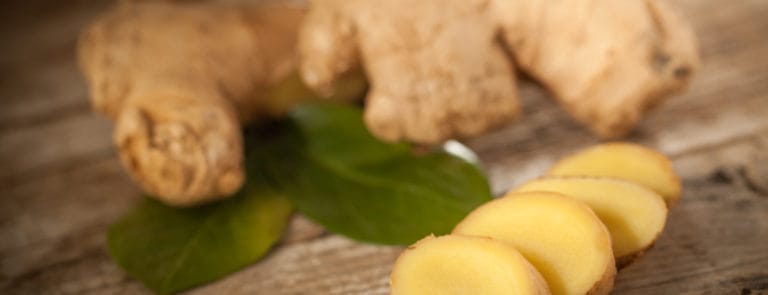Inflammation is our body’s natural way of responding to stress, infection and illness, helping us to get better. But to those with conditions like arthritis or allergies, it may seem like a nuisance. If you’re looking for anti-inflammatory solutions, we’ve tackled several ways to reduce inflammation naturally.
What causes inflammation?
Inflammation is a symptom of a wide range of conditions and diseases. Allergic reactions like hay fever or injuries and burns often trigger swelling or pain linked to short-term inflammation. Whereas in conditions like cancer, heart disease or diabetes, inflammation is longer lasting (chronic) and happens inside the body with no obvious symptoms. Chronic inflammation can also occur when people are obese or under stress.
As well as illness, our lifestyle and diet can also contribute to inflammation. Studies show
1 that regularly eating refined carbohydrates like white bread or white sugar, drinking too much alcohol
2 and eating processed meat
3 can also have an inflammatory effect on the body. Evidence
4 also suggests that processed food that contains hydrogenated (Trans) fat may be another factor. Working in a deskbound office job could also promote inflammation over time, with research
5 showing that it could be linked to leading an inactive lifestyle that includes a lot of sitting.
How can you reduce inflammation naturally?
Changing your diet
Evidence shows that following a low-carb
6 or vegetarian
7 diet could help reduce inflammation, especially for obese people. On his website, Dr Weil, MD creator of the Anti-Inflammatory Diet emphasises
8 the importance of avoiding processed food. He says: “The anti-inflammatory diet centres around variety, freshness, unprocessed foods and an abundance of fruits and vegetables.”
Regular exercise
As well as doing wonders for your waistline, studies
9 show that taking part in regular exercise can decrease inflammation which could lead to more serious diseases and conditions.
Boost your intake of Omega-3 fatty acids
Oily fish like salmon, tuna and mackerel are good sources of omega-3 fatty acids, which help fight inflammatory proteins in your body
10. Omega-3 contains DHA, a substance which supports brain function and could also be a useful treatment against inflammatory bowel disease
11.
Getting regular sleep
If you suffer from inflammation, make sure you get good quality sleep. Researchers
12 have found that not getting enough shut-eye can increase inflammation over time.
Curcumin
Naturally found in the spice turmeric, curcumin is well known for its anti-inflammatory properties. Evidence
13 suggests that it could help combat inflammation as a symptom of rheumatoid arthritis.
Ginger
A relative of turmeric, ginger is a common ingredient in cooking and baking as well as an herbal medicine used to treat nausea and indigestion. However, researchers
14 say that it could also fight inflammation caused by type 2 diabetes.
Spirulina
High in protein, iron, magnesium and vitamin b6, it’s no wonder spirulina is known as a so-called superfood. Studies
15 have shown that this algae may provide relief from inflammation, especially in the elderly. Further evidence suggests that it could also fight inflammation linked with diabetes
16 as well as lowering blood pressure
17.
Resveratrol
Found in blueberries, grapes, red wine and peanuts, resveratrol supplements may have an anti-inflammatory effect against insulin resistance
18 and conditions like coronary artery disease
19.
Zinc
Found in meat, dairy foods and shellfish, zinc plays an important role in several jobs in our bodies. As well as helping wounds to heal, studies show that zinc could also have anti-inflammatory properties, particularly for the elderly
20.
Whilst evidence shows that eating processed food and failing to get regular exercise can lead to inflammation, introducing anti-inflammatory foods to your diet, along with exercise and good quality sleep could help to ease symptoms and decrease your risk of developing other diseases further down the line.
Shop our Vitamins & Supplements range.
1 https://www.ncbi.nlm.nih.gov/pubmed/22826636
2 https://www.ncbi.nlm.nih.gov/pubmed/20083478
3 https://www.ncbi.nlm.nih.gov/pubmed/25849747
4 https://www.ncbi.nlm.nih.gov/pubmed/22216328
5 https://www.ncbi.nlm.nih.gov/pubmed/24205208
6 https://www.ncbi.nlm.nih.gov/pubmed/24224694
7 https://www.ncbi.nlm.nih.gov/pubmed/15474873
8 https://www.drweil.com/diet-nutrition/anti-inflammatory-diet-pyramid/science-of-anti-inflammatory-nutrition/
9 https://www.ncbi.nlm.nih.gov/pubmed/17144883
10 https://www.ncbi.nlm.nih.gov/pubmed/12480795
11 https://www.ncbi.nlm.nih.gov/pmc/articles/PMC3775255/
12 https://www.ncbi.nlm.nih.gov/pubmed/21112025
13 https://www.ncbi.nlm.nih.gov/pubmed/22407780
14 https://www.ncbi.nlm.nih.gov/pubmed/24312847
15 https://www.ncbi.nlm.nih.gov/pubmed/18714150
16 https://www.ncbi.nlm.nih.gov/pubmed/20016733
17 https://www.ncbi.nlm.nih.gov/pubmed/23684441
18 https://www.ncbi.nlm.nih.gov/pubmed/26751381
19 https://www.ncbi.nlm.nih.gov/pubmed/23224687
20 https://www.ncbi.nlm.nih.gov/pmc/articles/PMC4429650/




